In the Automating Train Operations with One Locomotive
a static configuration was used.
In the scenario described now, this is different. This results in changes to the configurations.
The automated train operation is as follows:
- The train with locomotive BR212-FW is at the station in block D2.
- Signal Demo-S-D2-li switches to “Go”.
- BR212-FW starts moving, beginning to travel clockwise.
- Signal Demo-S-D2-li switches to “Stop”.
- BR212-FW completes one round clockwise and enters the station block D2,
- slows down, and
- comes to a halt.
- The turnouts switch so that BR365 can make a round.
- Signal Demo-S-D2-li switches to “Go”.
- BR365 starts moving, beginning to travel counter-clockwise.
- Signal Demo-S-D1-re switches to “Stop”.
- BR365 completes one round counter-clockwise and enters the station block D1,
- slows down, and
- comes to a halt.
- The turnouts switch so that BR212-FW can make a round clockwise.
- Signal Demo-S-D2-li switches to “Go”.
This train operation repeats.
For locomotive BR212-FW, the scenario is very similar to Automating Train Operations with One Locomotive, Variant 2.
The locomotive BR212-FW stops at the station track, signal Demo-S-D2-li switches to “Go”, BR212-FW starts moving, beginning to travel clockwise, signal Demo-S-D2-li switches to “Stop”, BR212-FW completes one round clockwise and enters the station, slows down and comes to a halt:
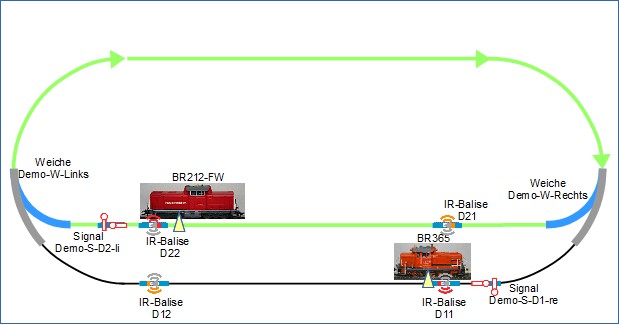
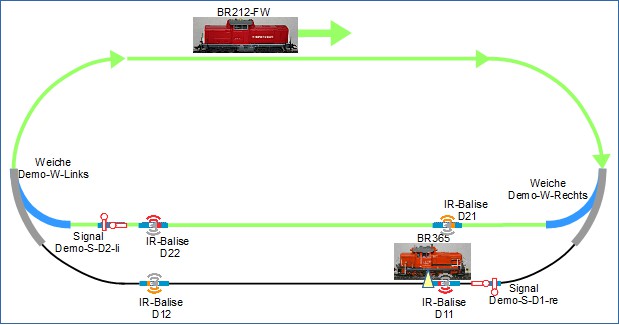
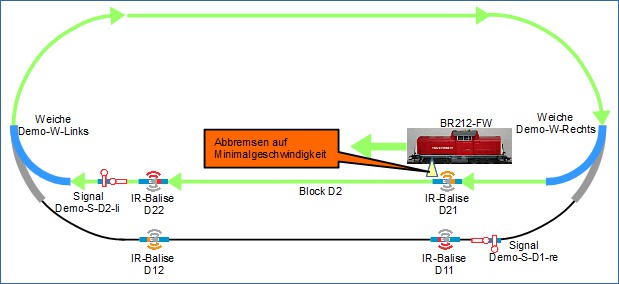
Now it’s BR365’s turn: The turnouts are switched so that BR365 can make a round counter-clockwise:
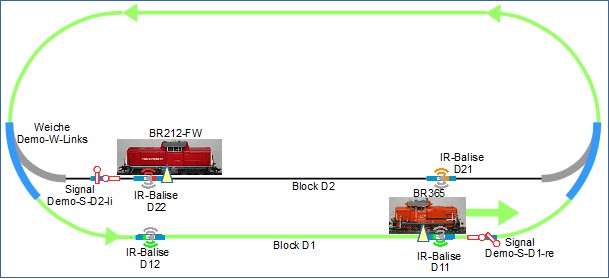
BR365 starts moving, beginning to travel counter-clockwise, signal Demo-S-D2-li switches to “Stop”:
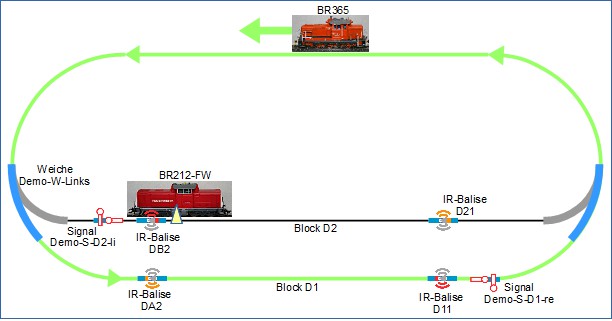
BR365 enters the station, slows down:
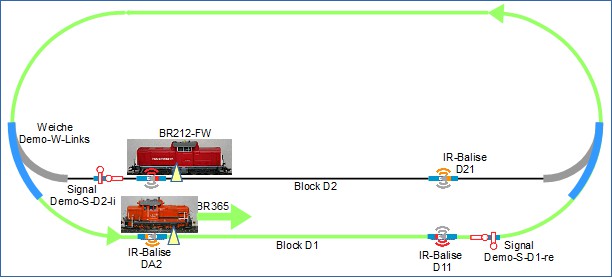
The locomotive BR365 comes to a halt at balise D11.
These necessary information and commands are configured.
Further description will follow shortly.



